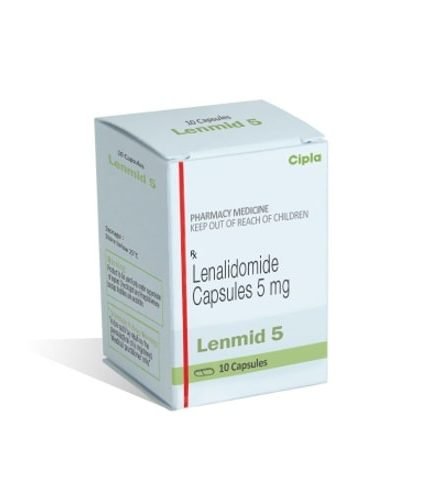Introduction:
Azithromycin is prescribed to treat bacterial infections such as bronchitis, pneumonia, sexually transmitted illnesses, and infections of the ears, lungs, sinuses, skin, throat, and reproductive systems.
This is also used to treat or prevent disseminated Mycobacterium avium complex infection, which is a form of lung infection that frequently affects HIV-positive individuals. Azithromycin belongs to a class of medicines known as macrolides. It inhibits the growth of microorganisms.
Colds, flu, and other viral diseases do not respond to antibiotics like azithromycin. Taking medicines when they are not required raises your chances of developing an infection that does not respond to antibiotic treatment.
About Azithromycin
Bacterial infections can be difficult to treat if they become serious. Bacterial infections with Azithromycin, in particular, can occur deep within human bodies.
If it starts harming our respiratory health, we should be concerned. In this sense, we require robust medical remedies to the problem. This is the medicine to use in this case.
Drugs like Zithromax include this and help to resolve the problem. We must understand how the medicine works to treat bacterial infections.
- Common Brands: Zithromax
- Drug Class: Macrolide Antibiotic
- Generic Status: Lower-cost Generic Available
- Availability: Prescription Only
What is Azithromycin?
This is a macrolide antibiotic that prevents bacteria from generating specific proteins.
Bacteria are unable to multiply without these proteins. Because of this protein inhibition, this is effective against a wide range of “atypical” bacteria that do not respond to other antibiotics.
This is a prescription medicine, which means you cannot lawfully obtain it without a doctor’s prescription. It is typically marketed as azithromycin, its generic name, or Zithromax, a prominent brand name.
When supplied in a predetermined dose pack, it is also known as a Z-pack. The FDA approved azithromycin for use in both children and adults. It is available in tablet, pill, liquid, and injectable formats.
What Is The Function Of Azithromycin?
The medication aids in the control of some bacterial illnesses that might cause harm to our bodies. It is an Azithromycin antibiotic tablet. It contributes to the control of the majority of bacterial illnesses. This is particularly useful in dealing with respiratory difficulties.
It also aids in the management of infections in other areas of the body. It can also be used in specific dosages to treat skin problems.
One of the primary reasons it is regarded as an excellent medicine for managing bacterial infections is its wide range of domains. The drug aids in the destruction of bacteria and the elimination of illnesses. We will also learn how the tablet works to alleviate this problem.
How Does Azithromycin Work in the Body?
Azithromycin inhibits bacterial growth, halting reproduction and spread throughout the body. It precisely targets and kills bacteria, however, it should be noted that it is useless against viral diseases like the common cold or flu. This is frequently recommended for bacterial illnesses that are susceptible to its activity.
How Should I Administer This Medication?
Take this drug by mouth, along with a full glass of water. Follow the medicine label’s advice. These tablets can be consumed with or without food. If the drug makes your stomach uncomfortable, take it with food.
Take your medicine at regular intervals. Do not take your prescription more frequently than recommended. Even if you feel better, take all of your medications exactly as prescribed. Do not skip doses or stop taking your medication prematurely.
Consult your healthcare provider about the use of this Althrocin 500 drug in children. While this drug can be provided to children as young as 6 months for some diseases, there are some precautions to take.
Azithromycin Uses
Azithromycin can be used to treat a variety of bacterial illnesses.
- Pneumonia Obtained In the Community
Community-acquired pneumonia can be caused by viruses, bacteria, or fungal infections. Azithromycin is effective against atypical bacterial pneumonia, also known as “walking pneumonia.” It may require a combination with another antibiotic and is not typically used to treat pneumonia in young children or newborns. According to studies, it shortens hospital stays and improves outcomes even when the treatment duration is shorter.
- Infection with the Mycobacterium avium complex
Azithromycin prevents and treats Mycobacterium avium complex (MAC) illness, notably in HIV patients.
- Ear infection
Studies have shown that azithromycin is beneficial in treating simple middle ear infections (otitis media) caused by bacteria in those who are allergic to first-line antibiotics.
- Chlamydia
Chlamydia is an STI. Delayed therapy can lead to pelvic inflammatory disease (PID). The CDC advises doxycycline but also considers azithromycin or levofloxacin as an alternative treatment.
- Cervicitis
Azithromycin is beneficial in treating cervicitis, however, doxycycline is recommended. If there is a danger of getting a gonococcal infection, your doctor will change your antibiotic course.
- Pharyngitis
Most pharyngitis is caused by viruses. Penicillin is the first-line treatment for bacterial pharyngitis, however, azithromycin also treats Group strep pharyngitis and may be used in people who are allergic to other antibiotics.
- Lyme’s disease
The CDC recommends that persons with early Lyme disease who are unable to tolerate doxycycline, cefuroxime, or amoxicillin be treated with azithromycin, even though it is less effective in this circumstance.
Taking this Azee 1000 medication needlessly raises the chance of acquiring antibiotic resistance.
Antibiotic resistance indicates that the drug may no longer be effective since bacteria have evolved ways to escape antibiotics.
How Does It Function?
Baycip 500 tablets work by killing bacteria. It does not destroy bacteria right away. It binds to these bacteria’s ribosomes. Following that, it slowly chokes. It limits its ability to contain protein.
These bacteria cannot grow or reproduce if they do not consume protein. This step is crucial to preventing bacterial development.
These bacteria suffocate in the absence of protein. They start to perish and do not propagate to other areas. It prevents the growth of these bacteria and aids in the elimination of the diseases they cause.
Common Applications of the Drug
It is a widely used medication to treat various types of infections. However, you should be aware that infections can occur in several places of the body.
These diseases might spread from your lungs to other areas. It can even happen to your skin and other internal body components. Its primary job is to alleviate breathing problems caused by microorganisms. It is the tablets’ major use.
However, it does not limit the medicine to this. It can also help control bacterial skin infections. Similarly, it is effective at treating bacterial infections in various regions of the body.
- Respiratory Issues
- Ear Infections
- Skin Infections
- STDs
- Throat Infections
What Should I Look Out For While Using This Medicine?
If your symptoms persist or worsen, notify your healthcare physician.
This medicine might cause significant skin responses. They can occur weeks or months after beginning the medicine. If you observe fevers or flu-like symptoms with a rash, contact your healthcare provider immediately.
The rash may be red or purple at first, followed by blisters or skin peeling. You may also notice a red rash with swelling of the face, lips, or lymph nodes in your neck or underarms.
Do not use over-the-counter diarrhea treatments. If you have diarrhea that lasts more than 2 days or is severe and watery, contact your healthcare provider.
This drug may increase your sensitivity to sunlight. Avoid direct sunlight. If you can’t avoid going out in the sun, apply sunscreen and protective gear. Avoid using sunlamps and tanning beds/booths.
Azithromycin Administration Instructions
- Injection
This is for patients with serious infections that require immediate intravenous therapy, such as community-acquired pneumonia or pelvic inflammatory disease. In most circumstances, it will be used in combination with other antibiotics.
- Tablet
Azithromycin pills are typically given once per day for 1 to 5 days. They can be taken with or without food, and they should always be taken exactly as directed.
- Liquid
Typically, azithromycin suspensions are powdered. These powders are dissolved in changing fluid amounts to achieve different concentrations—the pharmacist will follow your provider’s recommendations. Suspensions are especially useful for children and anyone unable to swallow pills.
- Liquid with Extended Release
Extended-release drug formulations allow for the medication to be slowly released into the body for an extended period following a single dose. Most patients find them more convenient to consume regularly. This could be used to treat otitis media and other infections. This is a less often-used azithromycin that can be harmful to newborns.
Dosage of Azithromycin
- Your age
- Condition treated
- The severity of the infection
- Potential medication interaction
- Pre-existing health issues
For example, most healthcare professionals recommend 500 mg on day 1 for community-acquired atypical pneumonia or bacterial pharyngitis in adults, and 250 mg per day on days 2–5.
The dosage for various infections is often printed on the patient information sheet included in the medicine package.
Your healthcare practitioner, doctor, or pharmacist can provide additional guidance.
Do not take your medication for any longer than your doctor has suggested, and even if you begin to feel better, stick to your authorized course.
Unfinished prescription regimens can result in antibiotic resistance, rendering the drug useless for future infections.
Azithromycin Tablet Usage in Children
Children can take azithromycin, but only with the supervision of a healthcare expert. The doctor will evaluate the child’s age and medical condition when determining the appropriate dosage and length of medication use. To avoid overdosing and potential negative effects, consult a doctor before taking azithromycin.
Dosage or Missed Dose
If you forget to take your azithromycin, take it as soon as you remember. However, if it’s almost time for your next dose, bypassing the missed dose is preferable. Do not take additional or numerous doses to compensate for the missing one. If you mistakenly take too much azithromycin, get medical attention right away.
Side Effects of Azithromycin
- Nausea
- Vomiting
- Stomach pain
- Diarrhea
- Headache
- Dizziness
- Irregular heartbeat rhythm
- Fainting
- Extreme fatigue
- Lack of appetite
- Muscle weakness
- Yellowing eyes
- Dark urine
- Abdominal pain
- Nausea
- Vomiting
- Rash
- Headache
This isn’t a comprehensive list of potential adverse effects. If you experience any side effects, inform your doctor right away.
If you have liver problems, azithromycin should be used with caution because it is removed by the liver.
Azithromycin has also been linked to worsening myasthenia gravis symptoms and, in rare cases, causing new ones.
Benefits of the Drug
There cannot be any medicine that discusses the various benefits it provides. The advantages are extremely numerous.
One of the initial advantages is how versatile it may become. The medication helps to reduce bacterial infections in many places of the body.
It is useful for a variety of reasons, including respiratory difficulties and skin infections. It can also aid in the prevention of sexually transmitted infections. For all of these reasons, it is fair to claim that it possesses a broad variety of disease control capabilities.
Second, unlike most antibiotics, Azithromycin does not require prolonged treatment. The medicine solves the problem quickly.
Furthermore, unlike most Azithromycin medicines, its interactions are limited. Few medications can interact with the medicine. This makes it much safer than other antibiotics, which can interact with your usual medicines.
Drug Interactions with Azithromycin
When azithromycin is used with other drugs, its effectiveness may be impaired. Azithromycin, like other drugs, can affect its efficacy.
This is known as drug interaction.
Tell your doctor about any current medications you’re taking.
This includes not only prescription drugs, but also non-prescription drugs such as vitamins, nutritional supplements, and herbal products.
- Antacids with magnesium or aluminum hydroxide
- Blood thinners like warfarin
- Colchicine is a gout medicine.
- Ergotamine, which is a migraine drug
- Amiodarone is used to treat irregular heartbeat
If there are any drug interactions, your doctor may adjust your prescription, and dose, or advise you to stop taking the other drugs for some time.
They may also opt to closely monitor you for suspected adverse effects.
People Who Can Use This
This Cefoprox 100 medicine can be used by anyone who has an Azithromycin bacterial infection. It will assist in reducing the problems. This is particularly safe to consume by grownups.
The doses must be carefully considered. A consultation with a doctor can be beneficial. This will aid in determining the appropriate dosages to meet the individual’s specific requirements.
This drug is safe to use even by children. Dosing guidelines will differ for a child. Again, a doctor can assist someone who is trying to treat these infections for their child.
However, when utilizing this medicine in specific instances, extreme caution is advised. For example, somebody with Liver Inflammation should exercise caution. The medicine may interfere with the treatment of the liver problem and exacerbate its distress.
If you have kidney problems, you should be particularly cautious. In these circumstances, adequate vigilance is necessary when using this medicine. In such instances, it is equally important to emphasize regular checkups.
Risks and Warnings of Taking Azithromycin
Your doctor will only prescribe a drug if the benefits outweigh the risks.
- An allergic response
Most people do not have serious allergic reactions when using azithromycin, however it is possible.
- Problems breathing
- Hives or a rash
- Swelling of the tongue, throat, and face
If you have a history of adverse reactions to azithromycin or comparable medications such as erythromycin or clarithromycin, do not use it.
If you experience any symptoms of a severe allergic reaction, seek immediate medical attention or dial 9-1-1.
- Pregnant or Nursing
The FDA defines azithromycin as a category B medicine, which means that it is safe in animal reproductive tests.
However, because there are no well-controlled studies in pregnant women, they urge that pregnant women only take azithromycin when required.
Azithromycin can enter into breast milk and cause diarrhea, rash, and vomiting in a nursing baby.
However, studies show that there is no deleterious effect on the infant because the amount of azithromycin in breast milk is less than the usual dose used to treat children.
If you are pregnant or breastfeeding, your doctor will determine whether this is the best treatment for your infection and condition.
Interactions of Azithromycin
When taken with azithromycin, medications that interact with it may reduce its effectiveness, shorten its duration of action, cause side effects, or have no effect at all. An interaction between two drugs may not usually necessitate discontinuing one of them; nonetheless, it does occur on occasion. Speak with your doctor about how to handle drug interactions.
Any medication that raises the risk of bleeding may interact with azithromycin. Alcohol may exacerbate azithromycin adverse effects, and grapefruit products may interact with azithromycin; however, such interactions are uncommon.
It is important to note that this list is not exhaustive and only contains common drugs that may interact with azithromycin. A complete list of interactions can be found in azithromycin’s prescribing instructions.
When to Visit a Doctor
If you feel poorly and suspect a bacterial infection, see your doctor or healthcare provider. They will prescribe an antibiotic based on your test findings.
Remember that you cannot get azithromycin over the counter, therefore you will need a doctor’s prescription to obtain one.
If you have any serious side effects or allergic reactions, contact your doctor right away.
If you don’t feel better after taking your prescription for the recommended amount of time, consult your doctor or health provider. Do not stop taking the medication without your doctor’s clearance.
How Should You Approach This?
You can take this medication at specific times throughout the day. You should take this for 3 or 5 days. A doctor will give you a time limit based on the severity of your problem. The medication is available in a range of dose options.
If you’re taking medication in tablet form, the most typical culprit is water. If it is offered in liquid form, pour some into a spoon and consume. These factors contribute to a better understanding of the precise dosage required.
You must follow the doctor’s directions. This allows you to achieve the desired results without causing severe disruption in the body.
Last Words:
Azithromycin is an excellent antibiotic for controlling bacterial infections. It can help you control several types of infections that occur in diverse body locations. You can obtain medications that include it, such as Althrocin 250, to treat your problems.
Medypharmacy to check your symptoms investigate problems and treatments, and, if necessary, text with a clinician in minutes.























